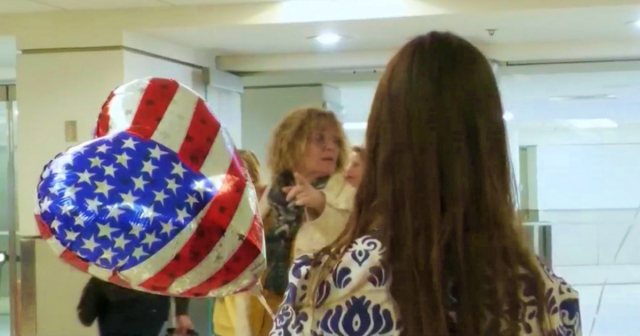The United States will allow beneficiaries of humanitarian parole who already had travel permits approved before the temporary suspension of the program announced on Friday to travel to that country.
The news was reported by Martí Noticias, citing a spokesperson from the Department of Homeland Security (DHS) as the source.
The clarification arises after beneficiaries of the program who had flights booked with American Airlines, Southwest, and other airlines were stranded on August 3 at Cuban airports when the airlines did not allow them to board the flights.
The authorities added that they are working with stakeholders, including airlines and sponsors, to resolve the issues that have arisen as soon as possible, and that they will continue to provide updates.
"As part of these efforts, some beneficiaries have been notified that the status of their Advance Travel Authorization (ATA) is denied," a spokesperson for the Department told the cited media outlet.
"People must have a valid ATA to travel to the United States under these processes. DHS is working to resume processing ATA applications with additional safeguards as soon as possible," he added.
Immigration officials who spoke on condition of anonymity said that on Saturday the news caught them by surprise, and that on that day they only processed beneficiaries of Haiti's humanitarian parole.
"Some officers [of immigration] received the order to allow them to board the planes from their countries of origin, while others were told that the program was on hold and they should not be allowed to board," the source said.
American Airlines, for its part, stated that "it continues to comply with the Administration's Advance Travel Authorization Program, supporting customers entering the United States as part of this program."
Meanwhile, Cuban families that were unexpectedly affected by the decision announced on Friday have shown desperation.
Many who had an approved permit and had travel plans for the same Saturday but were prevented from traveling are wondering how their cases will be resolved despite the statement made now by the DHS.
Temporary suspension of travel permits for beneficiaries of humanitarian parole
On August 2, the U.S. government temporarily froze travel permits for beneficiaries of the humanitarian parole program following an internal report that revealed significant levels of fraud, according to Fox News citing a spokesperson from the Department of Homeland Security (DHS).
The government source indicated that "as a precaution" they have suspended the issuance of advance travel authorizations for the program since mid-July, while they proceed to thoroughly review the applications from sponsors, which is where the focus of fraud is placed.
The CBP stopped issuing travel authorizations to Venezuelans on July 6 and to Cubans, Nicaraguans, and Haitians since July 18.
The report
Some of the reasons why the U.S. government decided to temporarily halt the parole program were revealed in an internal report from the Fraud Detection and National Security Directorate of the U.S. Citizenship and Immigration Services.
In that review conducted by USCIS until April 17, 2024, they had 2,622,076 applications. Of that number, nearly 529,000 applications were "confirmed" (or approved) and around 118,000 were "not confirmed" (or denied).
The internal document revealed that the application forms included social security numbers, addresses, and phone numbers that were used repeatedly, in some cases hundreds of times.
Parts of the report showed that 100,948 forms were completed by 3,218 serial sponsors, categorized as those whose numbers appear on 20 or more forms. It was also found that 24 of the 1,000 most used numbers belonged to a deceased person.
Additionally, about a hundred postal addresses were used between 124 and 739 times in more than 19,000 forms. These addresses included storage units.
The researchers observed that there are at least 100 IP addresses that accounted for 51,133 of the I-134A form submissions, which means that the same IP address was used multiple times.
The phone number of a sponsor was sent in more than 2,000 forms, and there were 2,839 forms with non-existent sponsor zip codes, according to the leak.
Last week, the authorities indicated that they will restart the processing as soon as possible "with the appropriate safeguards," although a probable date for the return of the travel permit grants was not anticipated.
The humanitarian parole program
The program was initially announced for Venezuelans in October 2022 and allowed a limited number of them to fly or travel directly to the United States as long as they had not entered illegally, had a sponsor in the United States, and passed certain checks.
In January 2023, the Biden administration announced that the program was being expanded to include Haitians, Nicaraguans, and Cubans, and that the program would allow for the entry of up to 30,000 people per month into the United States.
The program allows migrants to receive work permits and a two-year authorization to live in the United States.
By the end of June, 106,757 Cubans had benefited from the program, and about 104,130 had already traveled to U.S. territory, according to official CBP figures.
A lawsuit challenging the program was rejected earlier this year, but the Republican states that filed it have indicated that they intend to file an appeal.
What do you think?
COMMENTFiled under:
